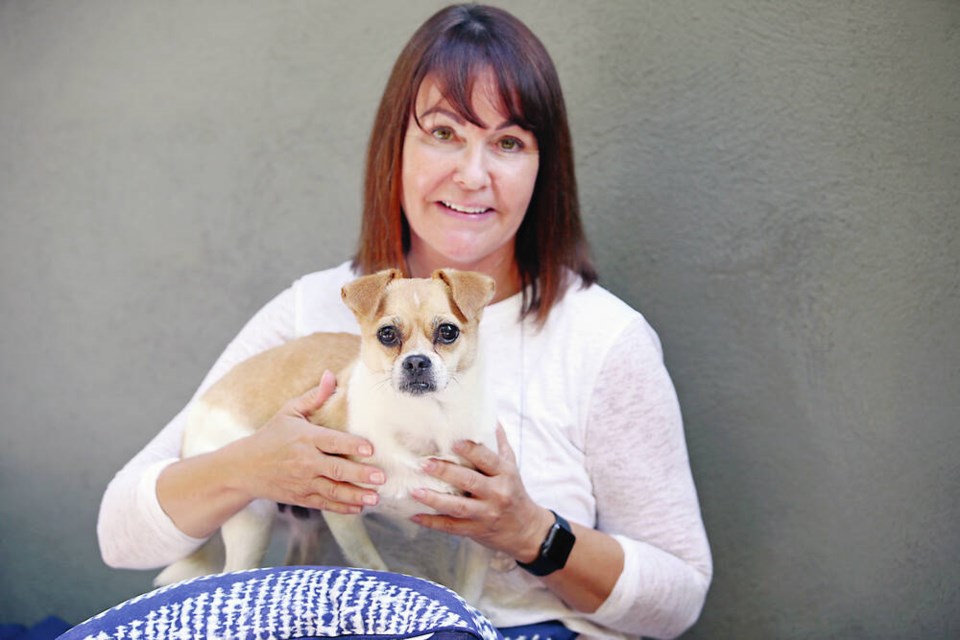A B.C. dog rescue organization says a federal ban on imported canines from about 100 countries will have a negative impact on dogs around the world.
The new restriction, implemented by the Canadian Food Inspection Agency, takes effect Sept. 28 — World Rabies Day — and bans the entry of commercial dogs from countries considered high risk for canine-variant rabies.
In its announcement, the agency noted rabies is more than 99 per cent fatal for humans and dogs once they start to show symptoms. “The importation of even one rabid dog could result in transmission to humans, pets, and wildlife. If a person is exposed, they need to undergo serious medical treatment.”
The agency said there are no active cases of dog rabies in Canada, but the ban was initiated because two infected dogs were imported into the country in 2021.
The decision was endorsed by the Canadian Veterinary Medical Association, which has lobbied for stricter canine importation laws since at least 2017.
“We’ve always known that it was a real risk and a real danger, but when those cases were discovered, it became a real and present danger,” said veterinarian Dr. Louis Kwantes, president of the association. “If the canine variant began circulating within a dog population, that could be devastating.
“If there was to be an outbreak, there’s no doubt there would be extreme measures taken to try and prevent it and that would include euthanizing a number of dogs.”
Kwantes said rabies has a long incubation period, and the only method of definitively testing for it in dogs is through a biopsy of the brain, which would require that the animal be euthanized.
“There is no guaranteed test for rabies that can be done on a live animal,” he said. “Given the long incubation period, the only other way to significantly reduce risk would be to take titers and also quarantine for six months. Cost-wise that becomes prohibitive.”
A titer is a test that detects previous infections and antibodies in the blood.
Jill O’Connell of Cordova Bay, whose mixed-breed dog George was imported from Harbin, China in March, argues two cases of rabies isn’t a strong enough case to ban dogs from more than 100 countries. She said that before he was rescued, George was being bred for the food trade in China. But no Chinese rescue dogs will find homes in Canada after Sept. 28.
“I really do believe in giving those dogs that are abused or bred for the wrong reasons, [in] giving them another chance,” she said.
George was brought to Canada through Furever Freed, an international dog rescue organization based in Langley that brings dozens of dogs to Vancouver Island each year. On Saturday, the organization will transport seven dogs to new homes across the Island.
“We can’t even keep up with folks on the Island adopting from us,” said founder Lisa McGaillard.
The organization works with partner rescue centres around the world, including two — one in Afghanistan and another in China — that will be affected by the ban.
McGaillard said her team is importing 33 dogs from China on Sept. 7 in an effort to get as many dogs out as possible before the ban goes into effect.
“There’s a lot of dogs that are going to die because of this,” she said. “It’s really devastating.”
Instead of a ban, McGaillard suggested mandated titer tests and quarantine periods for incoming dogs.
“We just don’t understand why Canada is going forward with this,” she said. “They do not have to do a complete ban. There’s other ways to improve the health of our dogs and our people here.”
The dog rescue group has launched a petition, but McGaillard said come Sept. 28, Furever Freed will have to stop bringing in dogs from the banned countries, and may ramp up intake from those not on the list, like Mexico.
“It’s heartbreaking when you’re a rescue [organization] and you have to turn dogs away and say no.”
ngrossman@timescolonist.com
>>> To comment on this article, write a letter to the editor: letters@timescolonist.com



